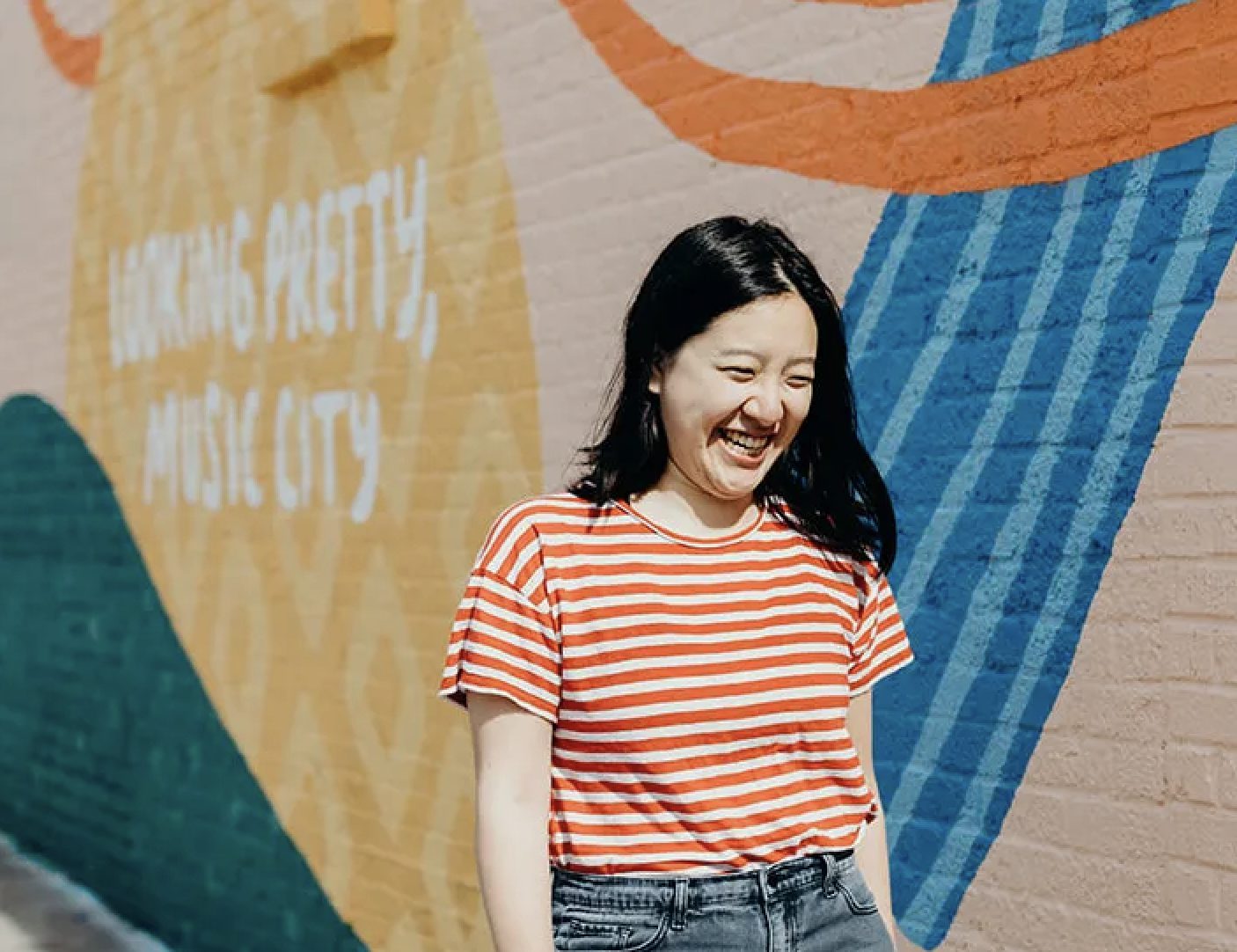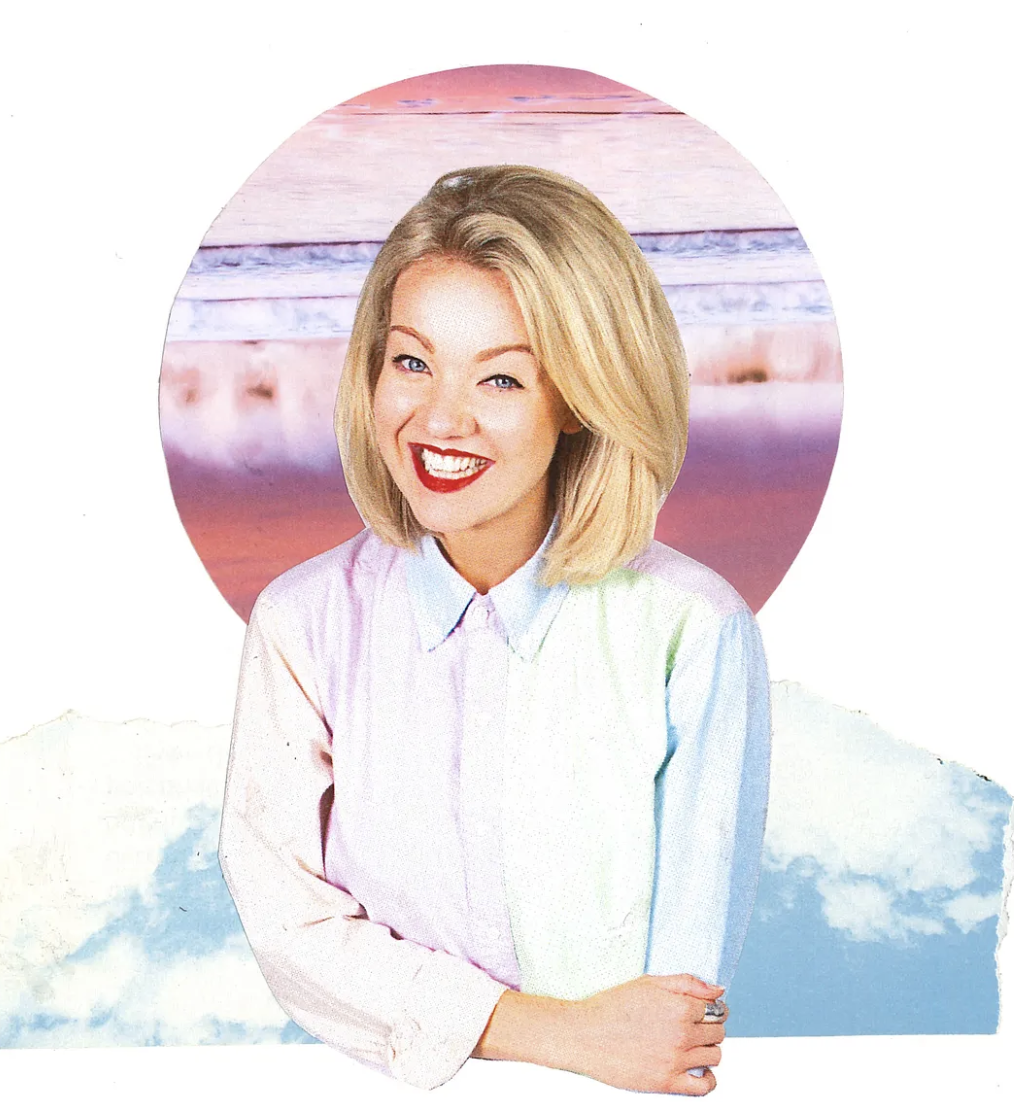Senior Media Partnerships Manager, Creators and Artists at Reddit
Maria Gironas
For Latinx and Hispanic Heritage Month, we’re spotlighting inspiring latinx and hispanic people making waves in the music industry. Maria Gironas is a Senior Media Partnerships Manager for Creators and Artists at Reddit, where she works with creators to onboard them onto the Reddit platform. Maria spoke with shesaid.so about her past life as a touring musician, her experience living with anxiety and depression, and her vision for latinx representation in the music industry.
shesaid.so: Can you tell us a little more about yourself, and your music career journey to date?
Maria: I started my career as an artist signed to a small label, and it changed my life. I got to play shows, tour, produce, and learn the nitty gritty on what it meant to be an artist. The crazy thing was, I was 11 when that all started. I was a kid being told what to wear, to write about honest feelings, to balance school and social life, and couple that with both the weight and honor it is to be a child of two Bolivian immigrants. It was a lot. I fell out of love with the idea of a musician, and fell in love with the idea that I could work with artists and creators to protect and honor their visions. My career since has been about two things: 1. Empowering creators and artists through embracing technology and data and 2. Elevating marginalized communities through all the work I do. Those north stars have brought me to companies like Reybee as a publicist, Fender in social media, YouTube in artist and creator development, Q&A/Human Resources on platform partnerships, Wide Eyed Entertainment in marketing, Downtown Records in DSP strategy, and now, Reddit heading up talent partnership efforts.
shesaid.so: What do you consider some of your greatest career achievements, and why?
Maria: Honestly, in my wildest dreams, I would have never thought to be in the place I am in my career. This might sound silly to someone reading this, but I am in a constant state of gratitude for my life, and I think I’d be lying if I wrote out what my greatest career achievement was, because just living right now, in the moment, feels like the biggest win of all. Young, little Maria would think this current Maria was pretty awesome.
shesaid.so: What are some of the challenges you’ve faced, and how have they shaped you and your career?
Maria: I’ve had a winding mental health journey my whole life. Through therapy, medication, and support from my friends and family, I’ve been able to manage my anxiety and depression. I’m grateful to say I’ve had some incredible bosses who were very open to letting me share my struggles and allowing the space to take a step back when I needed to. But, there were many, MANY, moments where I just didn’t take care of myself and it manifested into panic attacks, obsession, intrusive thoughts, and distancing myself from the people that cared about me. I think because I went through all of this, I can see when others might need space to feel heard and seen. Sometimes, gentle conversations on mental health could be allowing the space and time to properly ask, “how are you doing?” Within the Latino community, there is an unfortunate stigma surrounding mental health that is slowly being corrected, but still has a long way to go. All we can do sometimes is create space and give space, and I have known those simple actions to change the course of my life and career.
shesaid.so: Who in the music industry are you inspired by, and why?
Maria: My parents, Carla and Ramiro Gironas, are the people that inspire me the most in all aspects of my life, hands down. Within the music industry, I am the luckiest human on earth to admit that I have been truly blessed to have friends and mentors like Jenna LoMonaco, Rachel Stoewer Poston, Beka Tischker, Irene Richter, Jessica Rivera, Brooke Rascoff, Julie Nguyen, Sam Juneman, Rebeca Leon, Chelsea Dankner, Jordan Federman, Vatana Shaw, Erika Montes, Danielle Jimenez, Doris Munoz, Ana Maldonado, Ranya Khoury, Daniela Sala, Livia Piomelli, Tayla Ridley, Emily Garibaldi, Madilyn Bailey, Evange Livanos, Brynn Elliott, Kristin Gregory, Jensen McRae, Grace Adeyemo, Noreen Prunier, Kat MacLean-Daley, Ritz McCain, Blair Miller, Jordana Golub, Jamie Hart, Caroline Trujillo, Tenille Arts, Michele Stephens, Satasha Torres, Jillian Newman, Julie Gurovitsch, Brittany Crawford, Phylicia Fant, Erin Hanson, Lauren McKinney, Nicole Barsalona, Grace Segundo, Cecille Crisostomo, Sara Dempsey, Jackie Yaegar, Grace Roslovic, Shaun Alexander, Evangeline Elder, Whitney-Gayle, Benta, Niki Pittelli, Chelsi Zollner, Cecilia Winter, Julie Ciccarelli, Melanie McClain, and so so so many more. Remember these names!
shesaid.so: What do you hope to see more of in the music industry in regards to latinx/hispanic representation?
Maria: I want to see our community represented in all genres of music on all sides of the business. Latinx and love metal? Manage a metal band. Latinx and love pop music? Start a pop label. Latinx and love pop punk music? Start a pop punk band. Let’s spread our culture far and wide!
. . .
Become a member or find out how to support shesaid.so here.



